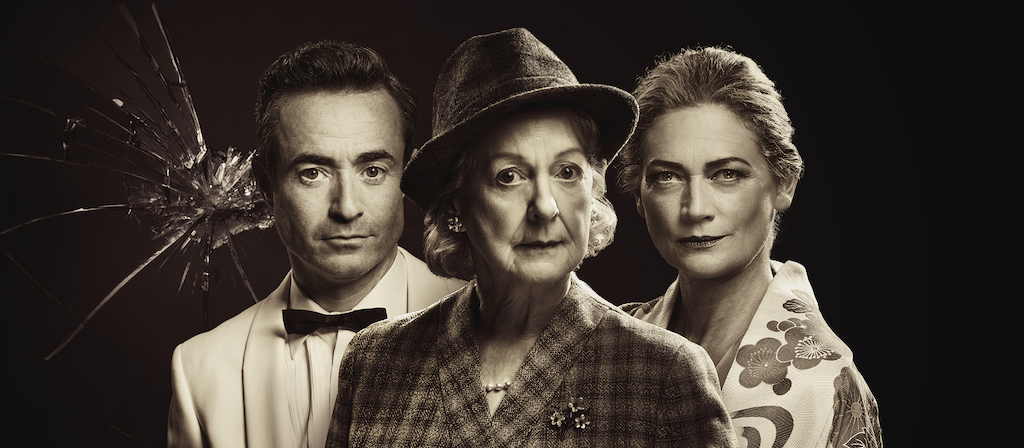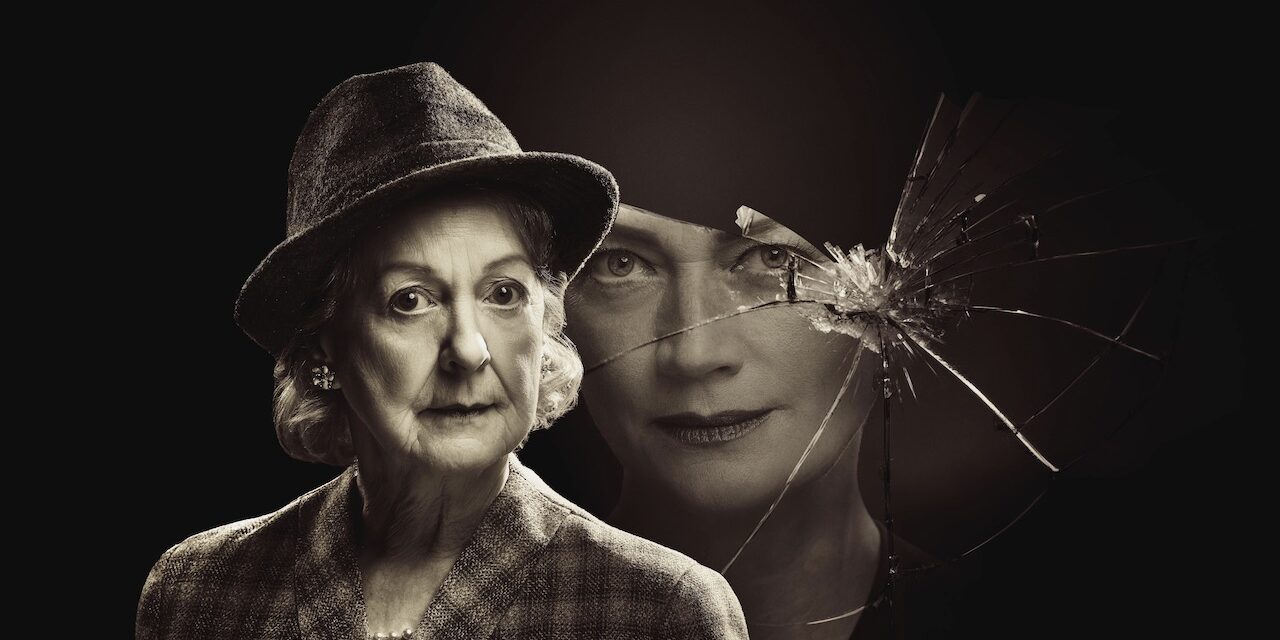
10 – 15 October
Whodunnits are notoriously difficult to stage. The essence of effective drama is conflict. And conflict is hard to maintain where lengthy explanation is required. Rachel Wagstaff’s adaptation of this late Agatha Christie tackles the problem head on. The plot is streamlined, several characters are dropped from the original and there is a strong focus on psychological motivation. But though this makes sense dramatically, it lessens the fun of deduction. And though the production, directed by Philip Franks, has many good points – energetic central performances, interesting use of sound and design, elegant costumes and clever flashbacks – the result is slick rather than engaging.
The Mirror Crack’d is based on one of the later Miss Marple mysteries. The plot centres on an apparently motiveless murder in a large country house, Gossington Hall, new home of Hollywood star and legend Marina Gregg, played with sultry elegance by Sophie Ward. The Hall is also the former home of Dotty Bantry, who has moved into a smaller property after the death of her husband. Dotty is Miss Marple’s close friend, an appealing character in her own right and engagingly portrayed by Veronica Roberts. Susan Blake is excellent as Miss Marple, her subtle and rapidly changing facial expressions suggestive of a whirring brain as she works to solve the puzzle from her armchair. Unable to walk after breaking her ankle, she learns much crucial detail from the faithful Dotty.
Despite these powerful performances, the production starts slowly, giving a picture of development in the village which may be of sociological interest and work well as fictional background, but feels less critical on stage. The book and the play both focus on the characters’ inner lives. Loss, the impact of the Second World War, the anguish that can arise out of both parenthood and childlessness, all are brought into the mix and accentuated in Wagstaff’s version. But theatre depends on action, and where there is too much explanation, the balance tilts in the wrong direction.
Wagstaff has chosen to tell the story through miniature dramas within the drama. It’s an occasionally effective technique and there are some touching moments as when the soon to be murdered guest explains why she is eager to go to the fateful party on the night of her death. Scenes shift rapidly; Miss Marple’s home, the Hall, a house on the new estate, the police station, the set of Miss Gregg’s latest film. But for a genre which works best in a single location, so much flitting feels confusing.
Agatha Christie’s popularity is based not just on her ingenious plots but on her comforting reliability. Murders are solved, bad people are punished. The Mirror Crack’d is a little more sophisticated in that unresolved trauma emerges in a way that feels distinctly 21st century. Thus, it’s easy to see why, of all the many novels, this one was chosen. But the adaptation only serves to show why Christie is better suited to film or TV than to theatre. The long running The Mousetrap was and continues to be an exception because, in that case, the characters are trapped in a single location and their incarceration itself creates a world of suspense on stage. Despite valiant efforts from this creative team, such a world is missing here.
★★★☆☆ Ros Carne 12 October
Photo credit: Michael Wharley


